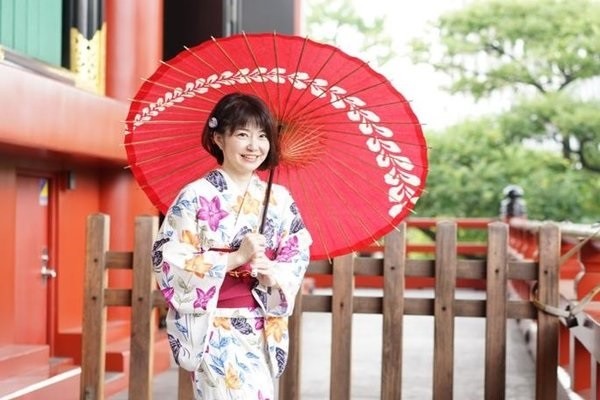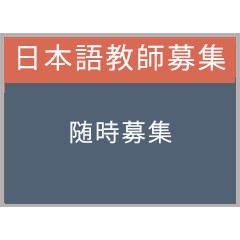Japanese Learning in Hong Kong Island
Native Japanese Tutor HINA

Native Japanese Teacher HINA
Native Language Japanese
Language Ability JAPANESE ONLY
Born Sapporo – Japan
Teaching Area Sai Ying Pun Sheung Wan Cental Admiralty Wan Chai Causeway Bay Tin Hau Fortress Hill North Point etc
Teaching Japanese Japanese Only
Japanese Courses Provided by HINA
Hong Kong Native Japanese Tutor
Nice to meet you, everyone!I am Hina from Sapporo, Hokkaido.I hadlived in Tokyo for 2 and half years and moved to Hong Kong this year.
【For those who are interested in Hokkaido】
I guess I am capable of sharing some information which is not on sightseeing books. I am glad that there are much agricultural food and seafood from Hokkaido consumed in Hong Kong.
If you are interested, I am happy to share information about food from Hokkaido and local language of Hokkaido because I was born and raised
there.
【For those who are interested in beauty care】
I have engaged in the beauty care industry for more than 10 years including, and my profession are:
For end-users
-skin care
-esthetics
-make-up
For Companies
-education to beauty care staff
-management
-instructor of beauty care
I do aromatherapy as a hobby as well.Regarding skin-care, make-up and anything on beauty care in Japan, I am very happy to share my knowledge and experiences. Looking forward to seeing you…
Let’s speak Japanese in terms of your preferable topics because Japanese language is difficult even for me. I would like to support everyone who is interested in Japan.
皆さん 初めまして。北海道札幌市出身のHinaです。2年半東京で生活をし、今年香港へ引っ越してきました。
【北海道に興味がある方へ】
生まれも育ちも北海道生まれなので、ガイドブックに載っていないお話が沢山できます。皆さんが買ったことのある日本製の食品【北海道産】が多いです♪食や自然以外にも方言など、北海道生まれの私がお伝えします。(^―^)
【日本の美容に興味がある方へ】
10年以上日本の美容業界で、お客様へスキンケア、エステ、メイクをしたり、企業で講師としてスタッフの美容教育、マネジメントもしてきました。現在も香港で美容コンサルタントとして仕事を続けています。趣味ではアロマテラピーもしています。スキンケア、メイク、日本の美容のことならば、私にお任せください(^―^)
「日本語」は日本人である私も難しいですが、とにかく一緒に興味を持った題材で「日本語」でお話しをしましょう。皆さんが日本をもっと大好きになるようサポートします!!
Japanese Teaching Approach
My Japanese lesson is mainly for Japanese conversation practice, I will teach Japanese according to the students’ interests, I will find the topics from the Japan Tour Guide, Japanese magazine, Japanese movies or whatever the students are interested, and then we practice oral speaking Japanese.
Learning Japanese is not only learning how to speak Japanese, but also I will focus on teaching the minor difference of each different Japanese words, Japanese vocabulary and sentences, and will teach the students how to speak Japanese like a native.
会話を中心に行います。生徒さんが興味のあるガイドブックや雑誌など、ビデオなどを用いて、その中からトピックを絞り、コミュニケーションを取ります。
「日本語」だけではなく、日本語が持つ言葉の背景や微妙なニュアンス、言葉の「間」などを伝えたいです。
Ask HINA Teacher Japanese Learning Questions
HINA先生へ「~から~」と「~ので~」の違いについて教えていただけないでしょうか?
HINA先生’s Answer:
「から」=【自分の主張をしたい】話し言葉として使える。
「ので」=【丁寧なお願いをしたい】話し言葉、書き言葉両方に使える。
となります。
★カフェで読書をしています。そうすると、横で大きな声で話している人がいます。声が大きいから静かにしてほしい。ことを伝えます。
・声が大きいから、静かにしてください。
→主張が強く、話す時の声のトーンによっては言われた相手が命令された。と不快に思ってしまう可能性があります。
家族や友人には日常的に使う表現ですが、
初めて会う人、目上の人、関係性が浅い人には避けるのが望ましい表現です。
・声が大きいので、静かにしてください。
→相手の立場、周りの立場を考え、丁寧さがある表現です。
「声が大きい」という事実を中立的に伝えています。
初めて会う人、目上の人、関係性の浅い人でも、使える表現です。
HINA先生へ「すごい楽しかった」と「すごく楽しかった」の違いについて教えていただけないでしょうか?
HINA先生’s Answer:
まず2つの文章に共通している
「楽しかった」についてです。
「楽しかった」=「楽しい」という【形容詞】の過去形となります。
そして、「すごい」と「すごく」についてですが、どちらも感動した時や、驚いた時などに使われる言葉です。
とても似ていますが
【すごい】=【名詞】+形容詞
【すごく】=【動詞や形容詞】+副詞
という文法になります。
「楽しい」とは形容詞でしたよね?
ということは【名詞】をプラスすると正しい日本語になります。
答え:「すごい楽しかった」
でも「すごく楽しかった」=形容詞+形容詞
文法上は間違っているのですが、この表現はネイティブの日本人でも間違って使ってしまう人が多いです(^―^;
HINA先生へ 「雨に降られた」と「雨が降っていました」と「雨が降りました」の違いについて説明してくれませんか?
HINA先生’s Answer:
「雨に降られた」
雨が降ることを予想していなかった。予想していなかった雨によって、影響を受けてしまった時に使う表現です。雨が突然の出来事のようなイメージです。
Ex)雨に降られた。そのおかげで洋服が濡れてしまった。
「雨が降っていました」
状態を説明しています。雨がずっと続いているイメージです。
Ex)昨日も雨が降っていました。
「雨が降りました」
事実を客観的に説明しています。
すぐ止んだ時にはこちらの「降りました」がぴったりの表現です。天気予報だと事実を客観的に説明するので「雨が降りました」という表現をよく使います。
Ex)1時間前に雨が降りました。
Ask HINA Teacher Japanese Culture Questions
Ma in Japanese unique culture
Ma (間) is a Japanese word which can be roughly translated as “gap”, “space”, “pause in time” or “the space between two structural parts.
There are many Ma (間) in Japanese like 「空間 space」「時間 time」and「会話の間 the silent pause in conversation」, we Japanese people think the importance on the relationship between the person we talk to and us. I think that [Ma], who cherishes his relationship with the others. Japan is a small island country, has a history of being constantly hit by natural disasters such as earthquakes and floods.
・The courier will always arrive at the designated time and place.
・Even if there are many people when it comes to disasters, Japanese people stand in lines so well.
・Japanese people could understand the other’s emotions without speaking each other.
・Traditional Japanese performing arts Kabuki and Noh, sports judo and sumo
It is a Japanese culture called “Ma”. I would be happy if everyone could feel the Japanese culture [ma].
日本人には独特の「間」という文化があります。
「空間」「時間」「会話の間」など沢山ありますが、何より日本人は「自分」と「相手」との関係性を重要としています。相手との関係性を大事にする【間】は、島国で国土が狭く、さらに地震や水害といった天災に常に見舞われた歴史背景があると思います。
・宅配便が指定された時間、場所に必ず届く。
・人が多くても、災害があっても列にきちんと並ぶ。
・言葉を交わさなくても、相手の気持ちを汲み取り行動する。
・日本の伝統芸能の歌舞伎や能、スポーツの柔道や相撲。
など全て【間】という日本文化です。皆さんにも日本文化【間】を感じていただけたら嬉しいです。



Stay in Touch
RSS
Facebook
Twitter
Google +1